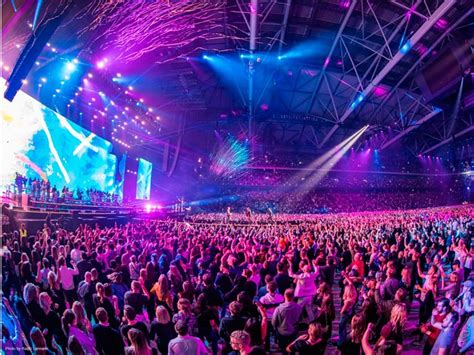Country music festivals have long been a vibrant cornerstone of cultural expression, celebrating the rich tapestry of this beloved genre. From their humble beginnings to their current global prominence, these festivals offer a unique blend of history, community, and musical evolution. This article explores the historical origins of country music festivals, delving into their cultural significance and economic impact. We will highlight renowned festivals worldwide, examine the diverse audience they attract, and discuss the challenges and technological advancements shaping their future. Join us as we uncover how these festivals not only showcase country music but also reflect broader cultural trends and societal shifts.
Join gamesfats.com for a detailed examination of this topic.
1. Historical Origins of Country Music Festivals
Country music festivals have roots deeply embedded in early 20th-century rural America. Local gatherings celebrated folk and traditional music, laying the groundwork for the first major country music festivals in the 1920s and 1930s. These festivals, often centered around barn dances and community events, provided a platform for local talent to shine. The rise of radio and recording technology played a crucial role in propelling the popularity of country music beyond its regional origins, further fueling the growth of these festivals. The Grand Ole Opry, established in 1925, stands as a landmark in the evolution of the festival format, transitioning from a local radio show to a national phenomenon. As country music evolved, its festivals followed suit, embracing a broader spectrum of musical styles and attracting ever-growing audiences. Today, these festivals serve as vibrant celebrations of not only the music but also the rich cultural heritage of country music, reflecting its journey from humble beginnings to its current global prominence.
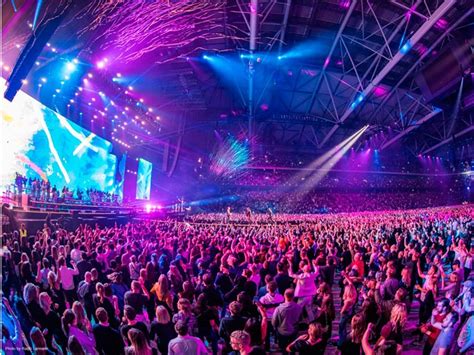
2. Cultural Significance of Country Music Festivals
Country music festivals hold profound cultural significance as they celebrate and preserve the rich traditions of this genre. These festivals serve as a vibrant showcase of country music’s deep roots in American history, often highlighting regional styles and local legends. They provide a space where fans and performers come together to honor the cultural heritage of country music, reinforcing communal ties and shared values. Through performances, storytelling, and traditional dances, these festivals create a living history of the genre, blending nostalgia with contemporary influences.
Moreover, country music festivals often reflect broader societal shifts, adapting to new trends while maintaining core traditions. They offer an opportunity for cultural exchange, as attendees from diverse backgrounds come together to experience and appreciate the unique sound and lifestyle associated with country music. By celebrating the genre’s evolution and fostering a sense of community, these festivals play a crucial role in sustaining the cultural vitality of country music and its place in the global cultural landscape.

3. Economic Impact of Country Music Festivals
Country music festivals have a significant economic impact on local communities and the broader economy. These events attract thousands of visitors, driving substantial revenue through ticket sales, merchandise, and concessions. The influx of attendees benefits local businesses, including hotels, restaurants, and retailers, by increasing their patronage during festival periods. Additionally, festivals create numerous job opportunities, from event staff and security to vendors and performers.
The economic benefits extend beyond immediate financial gains, as successful festivals often boost a region’s profile, leading to increased tourism and future investment. The rise in media coverage and promotional activities associated with these festivals can enhance a community’s reputation and attract new visitors. Overall, country music festivals contribute significantly to economic growth, providing vital support for local economies while promoting the cultural and social value of the genre.
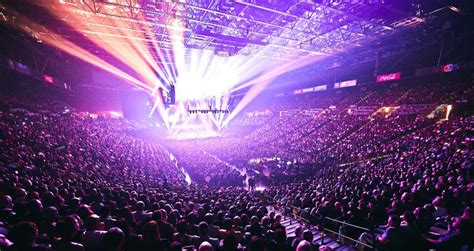
4. Popular Country Music Festivals Around the World
Country music festivals around the globe demonstrate the genre’s widespread popularity and diverse fan base. In the United States, the Grand Ole Opry in Nashville stands as a legendary and influential event, showcasing top country talent since 1925. The CMA Music Festival, also held in Nashville, attracts thousands annually with its extensive lineup of performers and fan-centric activities. In Texas, the Austin City Limits Music Festival includes country music alongside various other genres, drawing sizable crowds and significant media coverage.
Country music’s global appeal is evident in festivals like the Australian Outback Festival and the Country 2 Country (C2C) Festival. The Outback Festival, known for its distinctive blend of local culture and international acts, celebrates the genre in Australia. Across the Atlantic, C2C in the UK brings American country stars to Europe, showcasing the genre’s growing popularity. These festivals, each with its own unique character, demonstrate the power of country music to connect diverse audiences through shared musical experiences.

5. Country Music Festival Audience and Demographics
The audience of country music festivals is diverse, reflecting the genre’s broad appeal across different demographics. Traditionally, country music festivals attracted a primarily rural and conservative audience, often characterized by a strong affinity for traditional American values and lifestyles. However, over the years, these festivals have evolved to attract a wider range of attendees.
Today’s country music festivals draw a varied demographic that includes people of different ages, backgrounds, and cultural interests. Younger generations, including millennials and Gen Z, are increasingly participating, attracted by the genre’s evolving sound and the festivals’ blend of traditional and contemporary acts. Families, urban dwellers, and international visitors also contribute to the diverse audience, driven by the festivals’ family-friendly environment and global reach.
The demographic shift is also reflected in the growing inclusivity of festival programming, which often features a mix of genres, activities, and performances that appeal to a broader audience. The increasing representation of diverse artists and the incorporation of modern elements into festival experiences help attract a more eclectic crowd. Overall, country music festivals continue to expand their reach, embracing a more inclusive audience while celebrating the genre’s rich heritage.

6. Musical Diversity and Evolution at Country Music Festivals
Country music festivals have become dynamic platforms for showcasing the genre’s musical diversity and evolution. Originally centered on traditional country sounds, these festivals now feature a wide array of subgenres and influences. From classic honky-tonk and bluegrass to contemporary country pop and alt-country, festivals offer a rich tapestry of musical styles, reflecting the genre’s ongoing evolution.
The inclusion of various subgenres and fusion acts highlights the genre’s adaptability and growth. For example, festivals often present artists who blend country with rock, folk, or even hip-hop, creating innovative sounds that attract diverse audiences. This evolution not only celebrates traditional roots but also embraces new trends, ensuring that country music remains relevant and engaging.
Moreover, the integration of emerging artists alongside established stars provides a platform for new voices and fresh perspectives. This blend of veteran performers and up-and-coming talent fosters a vibrant festival atmosphere, encouraging experimentation and cross-genre collaboration.
As country music continues to evolve, festivals play a crucial role in both preserving its heritage and pushing its boundaries. By embracing musical diversity, these events highlight the genre’s ability to innovate while honoring its rich traditions, appealing to a broad and evolving audience.
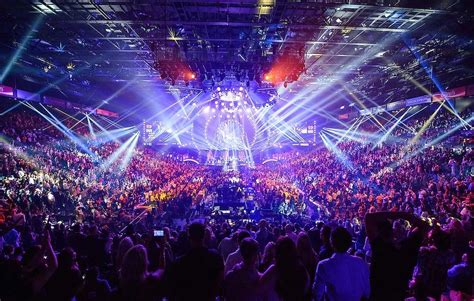
7. Challenges and Issues Facing Country Music Festivals
Country music festivals confront a multitude of challenges that affect their long-term viability. One major hurdle is mitigating the environmental footprint of these expansive gatherings. The substantial waste produced and strain on local resources necessitate a concerted effort by organizers to adopt eco-friendly practices and implement green initiatives.
Another issue is the escalating cost of production and ticket prices. As festivals expand in size and popularity, expenses for securing top-tier artists, ensuring security, and building necessary infrastructure rise. This can result in increased ticket prices, placing a financial burden on attendees.
Furthermore, striking a balance between respecting traditional country music and embracing contemporary influences can be a source of conflict. Some fans and critics contend that modern additions detract from the genre’s genuine spirit, leading to friction within the country music community.
Country music festivals, like all large gatherings, face the significant challenge of ensuring the safety and security of attendees. With growing concerns about public safety, effectively addressing these issues becomes paramount for the continued success and positive impact of these events.
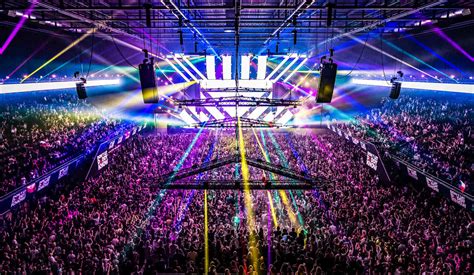
8. Technological Advances in Country Music Festivals
Technological advances have significantly transformed country music festivals, enhancing both the attendee experience and the efficiency of event management. One notable development is the use of advanced sound and lighting technology, which improves the quality of performances and creates immersive experiences. High-definition video screens and sophisticated audio systems ensure that even large crowds can enjoy clear and engaging performances.
Social media and mobile apps have revolutionized festival promotion and engagement. Through these platforms, festivals can reach wider audiences, provide real-time updates, and interact with fans. Apps also offer features such as interactive maps, schedules, and personalized notifications, enhancing the overall attendee experience.
In addition, virtual and augmented reality technologies are beginning to play a role in festivals, offering new ways for fans to experience performances remotely or in unique formats. Live streaming services allow people who cannot attend in person to enjoy the festival from anywhere in the world, expanding its reach.
These technological innovations not only improve the festival experience but also help organizers streamline operations and enhance their marketing strategies, ensuring the continued growth and appeal of country music festivals.

9. Future Trends and Directions for Country Music Festivals
The future of country music festivals is poised for exciting developments, driven by evolving trends and technological advancements. One prominent trend is the increased focus on sustainability, with festivals adopting greener practices to minimize their environmental impact. Organizers are implementing waste reduction strategies and promoting eco-friendly initiatives to create more sustainable events.
Additionally, the integration of technology will continue to enhance the festival experience. Virtual reality, augmented reality, and advanced live streaming will provide new ways for fans to engage with performances, whether attending in person or remotely. These technologies will help festivals reach broader audiences and offer immersive experiences.
The genre’s diversity will also shape future festivals, with a growing emphasis on blending country music with other genres and exploring new musical styles. This evolution will attract a wider audience and keep the genre vibrant and relevant. As country music festivals adapt to these trends, they will continue to celebrate the genre’s rich heritage while embracing innovation.

Country music festivals are a testament to the genre’s rich heritage and its dynamic evolution. From their historical origins to their global impact, these festivals celebrate the diverse musical styles and cultural significance of country music. As they navigate challenges and embrace technological advancements, they continue to attract diverse audiences and adapt to new trends. The future of country music festivals promises further innovation and inclusivity, ensuring they remain a vibrant and integral part of the cultural landscape.
gamesfats.com
